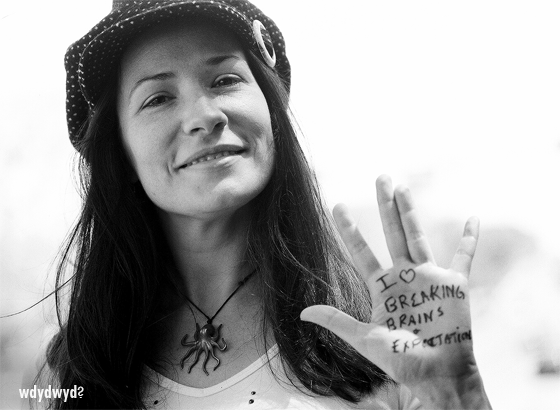Way back when I was in the rabbinate, someone emailed me the description of the perfect rabbi:
The results of a computerized survey indicate the perfect Rabbi preaches exactly fifteen minutes. He condemns sins but never upsets anyone. He works from 8:00 AM until midnight and is also a janitor. He makes $50 a week, wears good clothes, buys good books, drives a good car, and gives about $50 weekly to the poor. He is 28 years old and has preached 30 years. He has a burning desire to work with teenagers and spends all of his time with senior citizens. The perfect Rabbi smiles all the time with a straight face because he has a sense of humor that keeps him seriously dedicated to his work. He makes 15 calls daily on congregation families, shut-ins and the hospitalized, and is always in his office when needed.
You get the point: there's no such thing as a perfect rabbi, as much as there is a perfect teacher, lawyer, doctor or mother. Yet, ever since the first blast of the Shofar in shul last week, I've been thinking about perfectionism and the delicate balance between the dangers of perfectionism on one hand, and our concurrent need to strive for perfection.
Being a perfectionist can be extremely destructive. A perfectionist by definition is never happy. Because achieving perfection is literally impossible, one's work is never really good enough. Actually, it's never really good at all. And since it's not going to be "good" (i.e. perfect), often the perfectionist won't even bother starting a project or endeavor at all. After all, what's the point of working on something that you know will fail?
And yet, for all the dangers of perfectionism, that seems to be precisely the demand that Judaism places upon us during the Yamim Noraim. Rambam writes,
ומה היא התשובה--הוא שיעזוב החוטא חטאו, ויסירנו ממחשבתו ויגמור בליבו שלא יעשהו עוד, שנאמר "יעזוב רשע דרכו, ואיש אוון מחשבותיו" (ישעיהו נה,ז). וכן יתנחם על שעבר, שנאמר "כי אחרי שובי, ניחמתי, ואחרי היוודעי, ספקתי על ירך" (ירמיהו לא,יח); ויעיד עליו יודע תעלומות שלא ישוב לזה החטא לעולם, שנאמר "ולא נאמר עוד אלוהינו, למעשה ידינו--אשר בך, ירוחם יתום" (הושע יד,ד). וצריך להתוודות בשפתיו, ולומר עניינות אלו שגמר בליבו. - הלכות תשובה ב', ג
What constitutes Teshuvah? That a sinner should abandon his sins and remove them from his thoughts, resolving in his heart, never to commit them again as [Isaiah 55:7] states "May the wicked abandon his ways...." Similarly, he must regret the past as [Jeremiah 31:18] states: "After I returned, I regretted." He must reach the level where] He who knows the hidden will testify concerning him that he will never return to this sin again as [Hoshea 14:4] states: "We will no longer say to the work of our hands: `You are our gods.'" He must verbally confess and state these matters which he resolved in his heart.
Each year, as I review these important halachot, I stop on that line from Rambam: He must reach the level where] He who knows the hidden will testify concerning him that he will never return to this sin again. Really? Never again? Can I really testify before God that I'll never revert to my past sins; that I'll never slip up? That I won't fall prey to my evil inclination, and commit a sin from my past?
Is not the obligation to "never return to this sin again" a demand for perfection? Never doesn't mean "try not to" or "promises not to" – it means never. Ever. Perfection.
Like many questions, I'm not sure that there's one good answer to this question. This year, I have come to understand that Rambam's formulation demanding a commitment to perfection represents a core aspect of Yamim Noraim that we, as imperfect beings, must confront at least once a year.
On Yom Kippur, the spiritual high point of the year, we emulate the angels. For one day, we eschew our physical selves; our hunger, sexuality, work and leisure, and spend this one day basking in the glory of God. We are, as much as we can possibly be, spiritual. At the same time, we recognize that this yearning is impossible.
That, in a nutshell, is the human condition: the desire for perfection, combined with the knowledge that it is something we will never achieve. During the rest of the year, we take refuge in our humanity, excusing our mistakes and shortcomings. But for one day, we expect perfection of ourselves, and that expectation propels us to improve, repent, return and transform ourselves into better, more perfect people.
There's a famous custom mentioned by the Rema (Orech Chayyim 583:2):
יש המדקדקים שלא לאכול אגוזים שאגוז בגימטריא חטא
There are those who are meticulous not to eat nuts [on Rosh Hashanah] for the gematria (numerical equivalent) of (the Hebrew word) "egoz" (nut) equals "cheit" (sin).
There's only one problem with this custom – or at least the explanation for it: the math is off. The words are not equal. Egoz (אגוז) is 1+3+6+7=17. Cheit (חטא) is 8+9+1=18. They're not even equal to each other!
Maybe that's precisely the point. Sin represents the definition of imperfection. Through our shortcomings, we demonstrate just how incomplete we truly are. In this simple custom, we refrain from eating nuts, to remind us of this exact point – that we are not perfect, and have much to strive for during the Ten Days leading up to Yom Kippur.


















.jpg)
.jpg)



